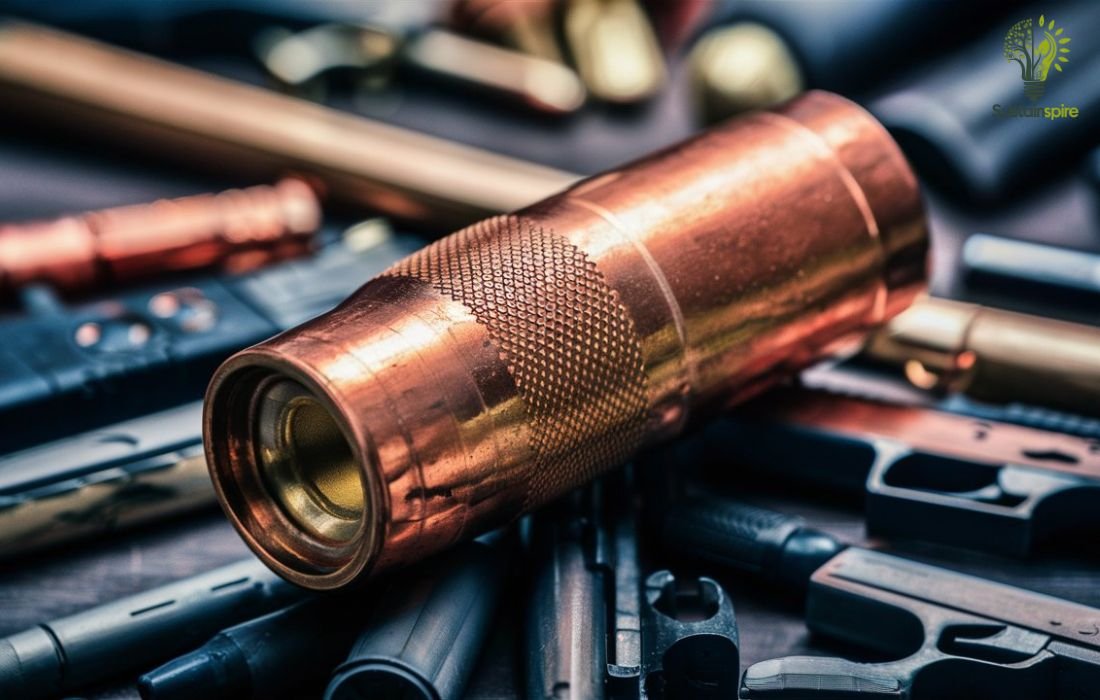Are You Ready to Recycle Brass Shells and Join the Green Revolution?
Are you tired of seeing spent brass shells litter the ground at shooting ranges and in your home workshop? Do you worry about the environmental impact of discarding these metal casings? If so, you’re not alone. Millions of spent brass shells are discarded each year, posing a significant threat to our planet.
This comprehensive article will delve into the world of recycling brass shells. We’ll explore the importance of recycling brass shell casings, the challenges involved, and the numerous benefits you can reap by doing your part. Get ready to make a difference, one brass shell at a time!
This article will provide you with the knowledge and resources you need to become an active participant in the recycling revolution. From understanding the environmental impact of brass shell disposal to finding local recycling centers, we’ve got you covered. So, sit back, relax, and embark on this eco-friendly journey together!
What are Brass Shells?
Brass shells are a type of ammunition used in firearms. They are made of brass, which is a metal alloy composed of copper and zinc. Brass shells are typically used for rifle, pistol, and shotgun ammunition.
Brass has several properties that make it a good choice for ammunition shells. It is strong and durable, so it can withstand the high pressures that are generated when a firearm is fired. Brass is also relatively easy to work with, making it a good choice for manufacturing ammunition shells.
Brass shells are typically reloaded multiple times by experienced shooters. This is possible because brass is a relatively soft metal that can be easily resized and reformed to fit a new cartridge. Reloading brass shells can save money on ammunition costs, and it also allows shooters to customize their ammunition to meet their specific needs.
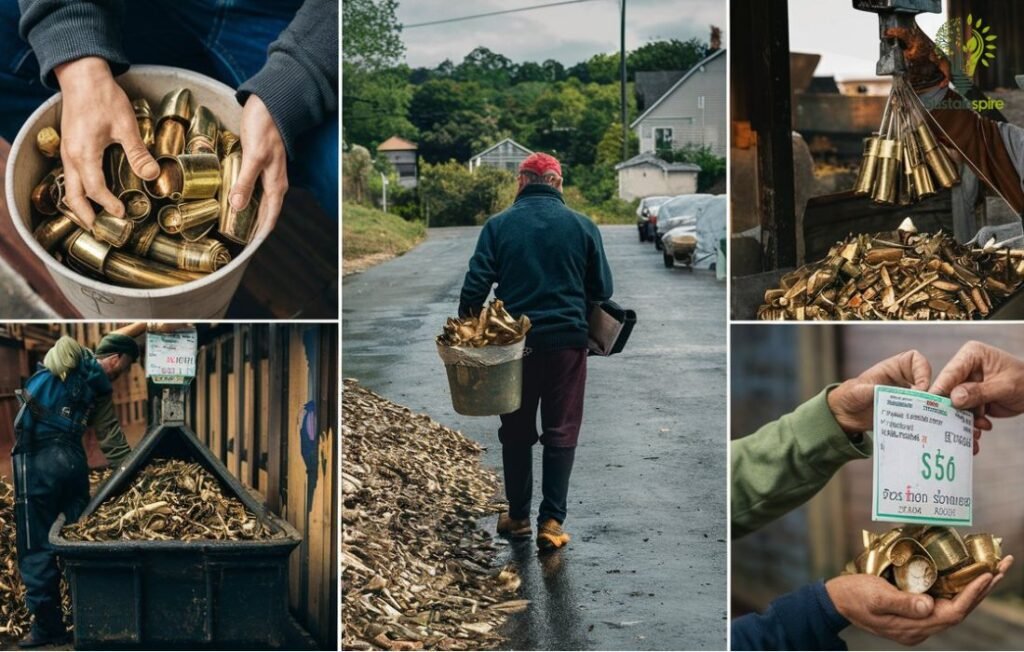
Benefits of Recycling Brass Shells
As a responsible and informed senior citizen, it is essential to understand the multifaceted benefits of recycling brass shells. Here’s a comprehensive exploration of the environmental and economic advantages of this important practice:
Environmental Benefits
Reducing Landfill Waste and Pollution: Brass shells, if not recycled, end up in landfills, where they take up valuable space and contribute to environmental hazards. Recycling helps reduce the volume of waste sent to landfills, preventing potential soil and water contamination. Plus, less landfill space means a smaller carbon footprint from waste management operations.
Conserving Natural Resources and Energy: Manufacturing new brass products requires mining and refining raw materials. Recycling saves these precious resources by using existing brass, which also significantly reduces the energy consumption associated with extraction and processing. Who knew saving the planet could be so energy-efficient?
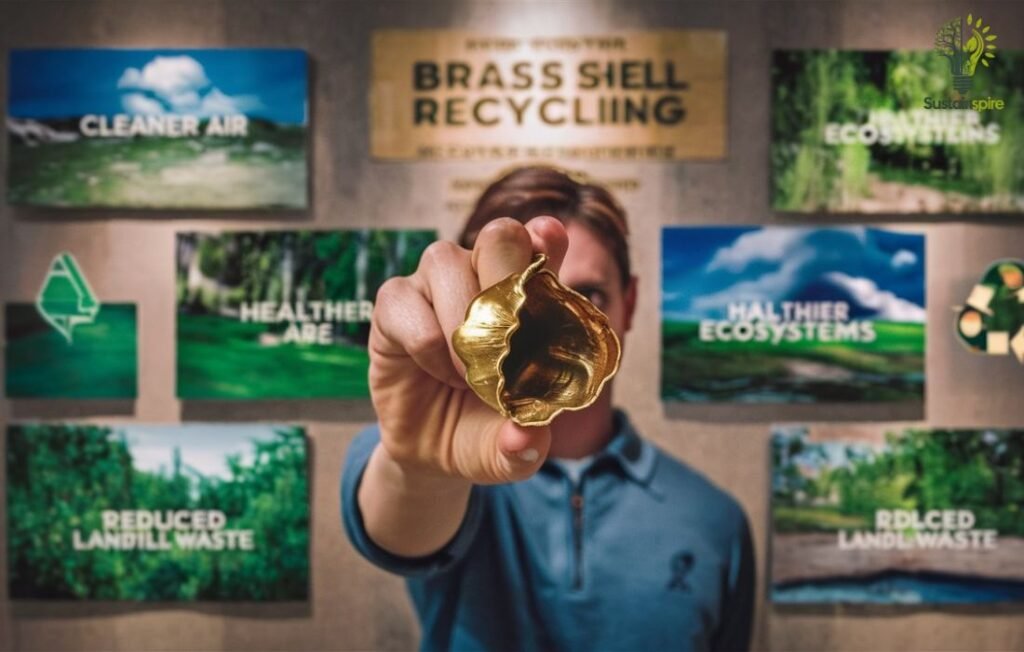
Economic Benefits
Generating Income from Recycled Brass: Recycling brass shells can be a profitable endeavor. Brass is a valuable metal, and recycling facilities pay for the scrap, which can provide additional income for individuals or organizations. Every penny counts, especially when it helps protect the environment.
Supporting Local Businesses Engaged in Recycling: Recycling brass shells supports local businesses and industries involved in the collection, processing, and reuse of scrap materials. These businesses create jobs, boost the local economy, and keep our communities cleaner.

Remember, brass shells may be small, but their environmental and economic impact is significant. By recycling them, you become part of a virtuous cycle that benefits both our planet and our wallets.
Methods of Recycling Brass Shells:
Brass shells are a common form of waste. They can be recycled, but the process is not always easy. There are a few different methods of recycling brass shells, and the best method for you will depend on your circumstances. Following are the 5 Ways to Recycle Brass Shells.
Method 1: Local Scrap Yards
Local scrap yards offer a solution for brass shell recycling. You may need a bucket or container to transport your brass shells to the scrap yard. Visit a scrap yard that accepts metals, commonly found in major cities and towns in the United States. For example, there is a company named “American Auto Salvage & Recycling” Address: 516 S Shell Rd, Debary, FL, 32713 also offers brass recycling. You can contact them at their website and visit in person.
The scrap yard will weigh the shells and compensate you based on weight at a price per pound. Some scrap yards may specialize in brass shell recycling, so call ahead or research online to confirm availability. Utilizing local scrap yards effectively disposes of your brass shells and potentially earns you money.
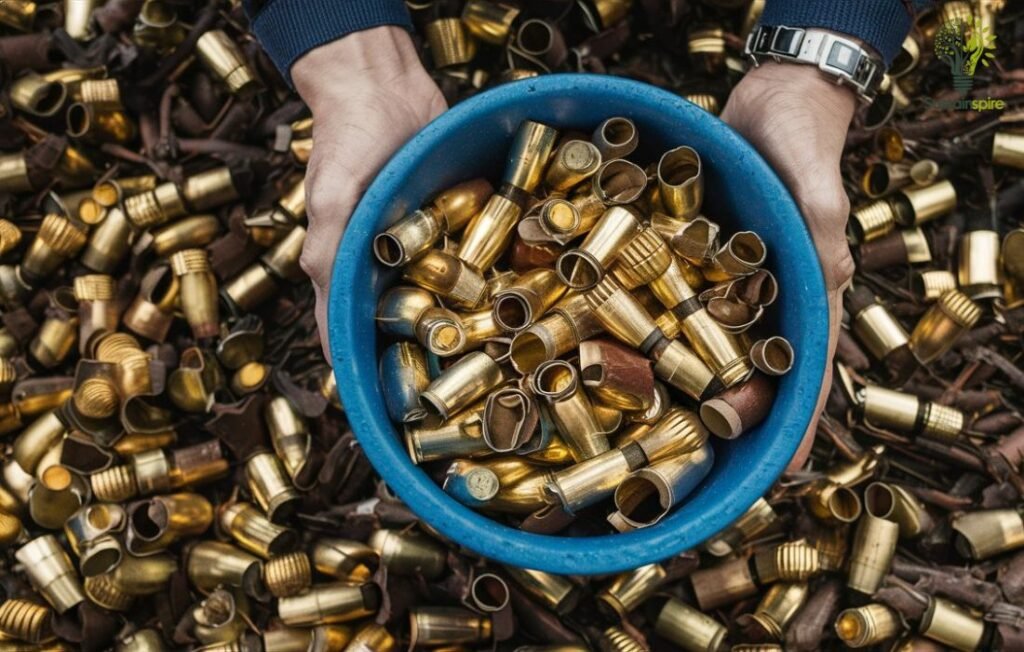
Method 2: Ammunition Manufacturers
Ammunition manufacturers, including Winchester, Remington, and Hornady, offer recycling programs for their spent brass shells. They provide you with a mailing label and instructions on how to return the shells. Ammunition manufacturers are located throughout the United States. To participate, you may need a box or envelope to mail the shells back. There are some Ammunition Manufacturers in the USA like federalpremium, denverbullets, and many more. You can call or email them to ask whether they offer these services or not.
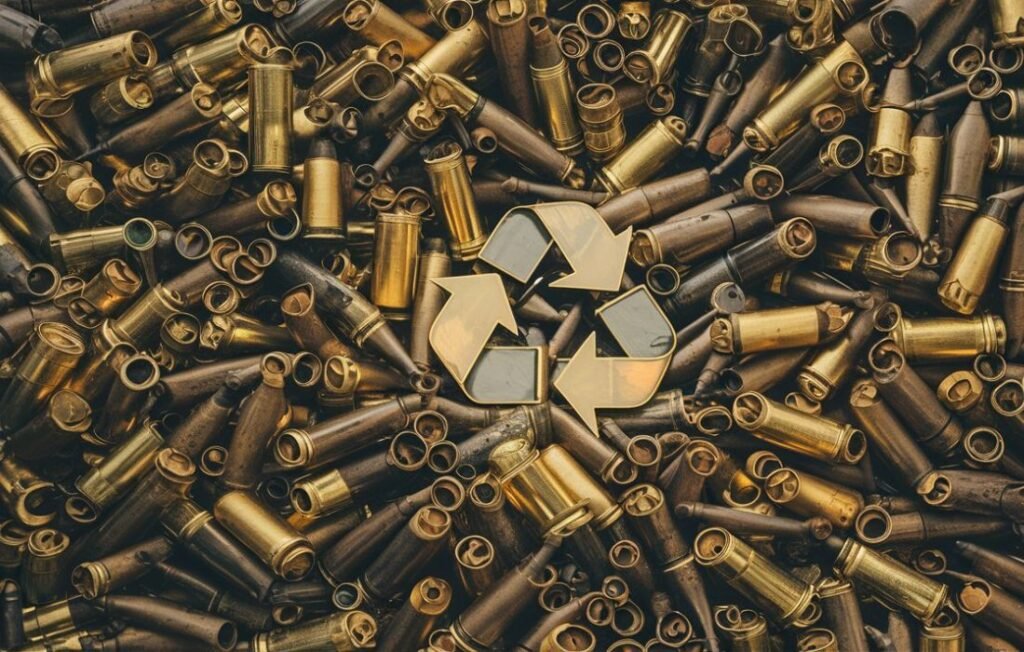
Method 3: Online Recycling Platforms
Sell your brass shells on online recycling platforms. Create an account, list your shells, and ship them to buyers after purchase. ScrapMonster, OfferUp, and eBay are popular platforms. These platforms are accessible nationwide. To participate, create an account and use a computer or mobile device to list and sell your shells.
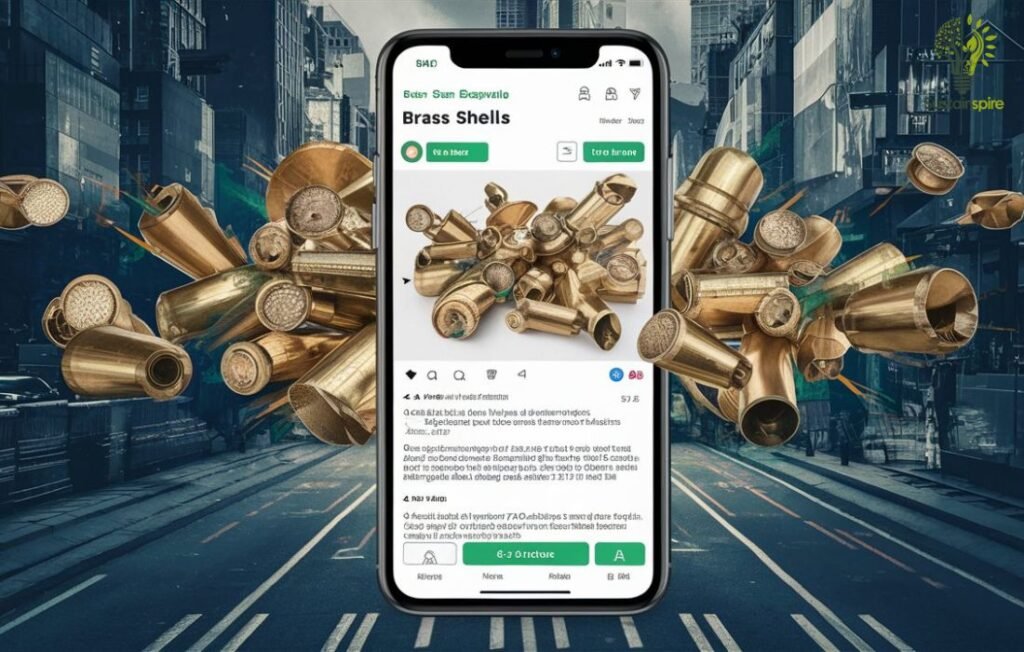
Method 4: Community Recycling Initiatives
Some communities have recycling initiatives for brass shells. Reach out to your local recycling center or waste management company to inquire about their participation. For instance, Austin, Texas offers a program where residents can drop off their shells at designated recycling centers. The “Brass for the Cause” drive in Milwaukee, Wisconsin collects shells to raise funds for charities. The availability of these programs varies by region. You may need a bucket or container to transport your brass shells to the recycling center.
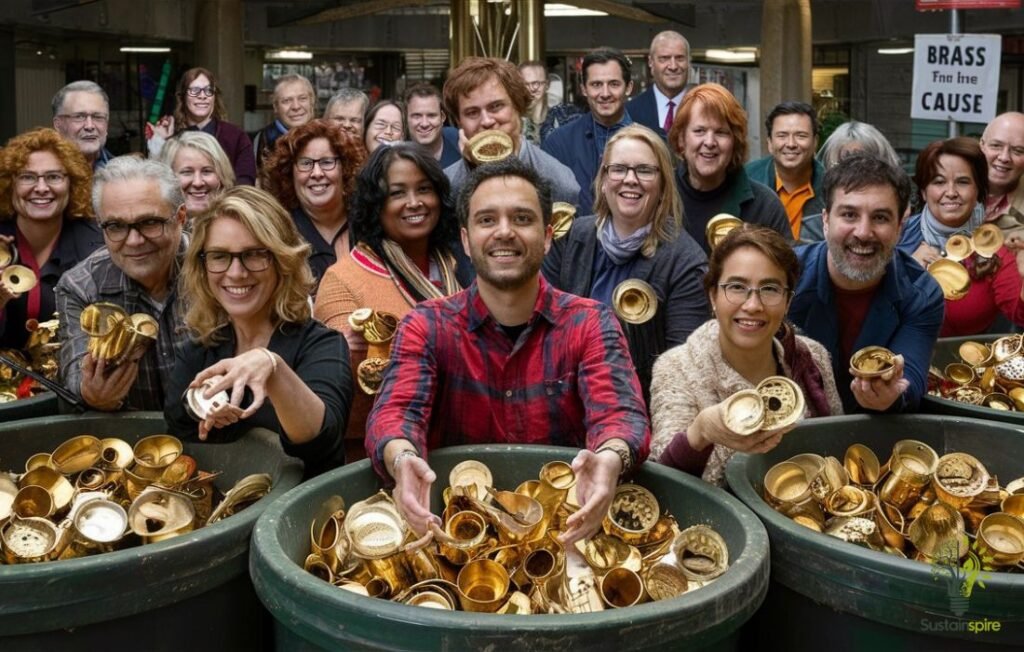
Method 5: DIY Brass Shell Recycling
DIY Brass Shell Recycling offers a method for recycling large quantities of brass shells. The process entails melting down the shells and reshaping them into new items. Detailed instructions are available online, and the recycling can be done in your garage or backyard, with the permission of Police. Essential tools include a melting furnace, molds, and safety gear. Before embarking on this method, reviewing legal aspects in your community and state is crucial to ensure compliance.
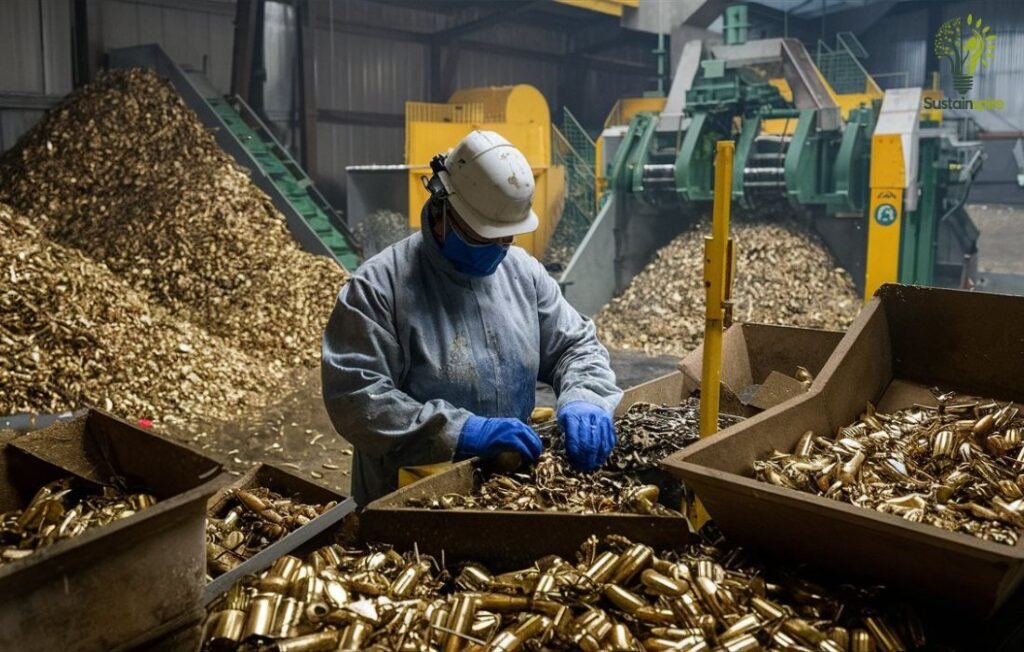
How to Recycle Brass Shells Responsibly
When it comes to recycling brass shells, there are a few things you need to keep in mind to do it responsibly. Here are five steps to help you get started:
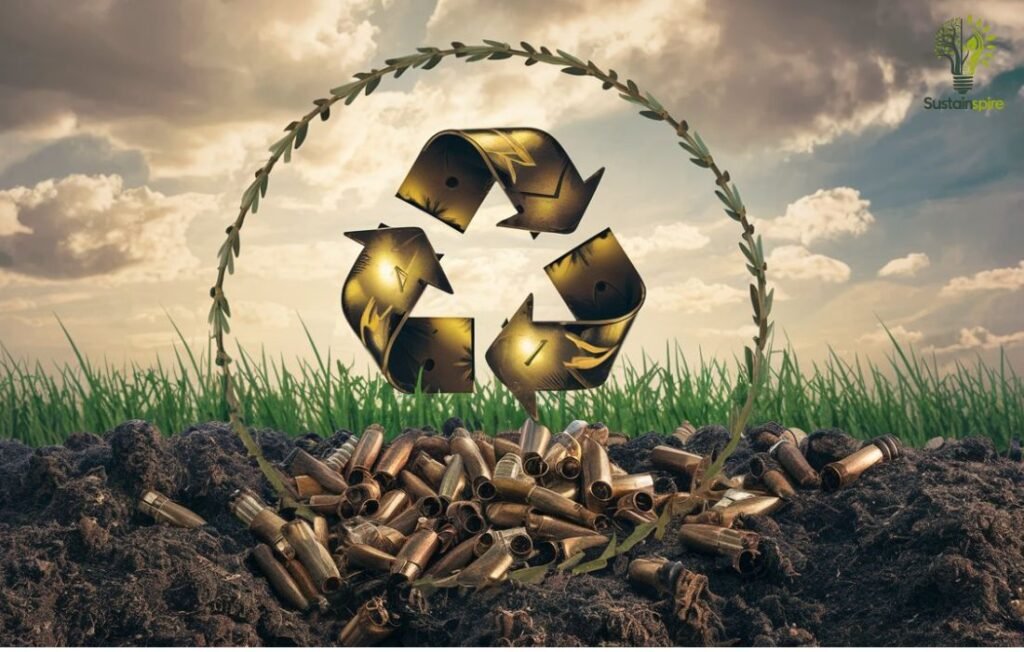
1. Proper Preparation
Before you start recycling brass shells, it’s important to make sure they are properly prepared. This means removing any live ammunition, primers, or other hazardous materials. You should also clean the shells to remove any dirt or debris.
2. Safety Precautions for Handling
When handling brass shells, it’s important to take safety precautions. This means wearing gloves and eye protection. You should also be aware of the potential for lead exposure and take steps to minimize your risk.
3. Cleaning Shells to Enhance Value
Cleaning your brass shells can help to enhance their value when you recycle them. You can use a variety of methods to clean your shells, such as tumbling, ultrasonic cleaning, or hand cleaning.
4. Selecting the Right Recycling Method
There are a few different ways to recycle brass shells. You can take them to a local scrap yard, send them to an ammunition manufacturer, or use an online recycling platform. Each method has its advantages and disadvantages, so it’s important to choose the one that’s right for you.
5. Considerations for Each Option
When choosing a recycling method, there are a few things you should consider. These include the cost, convenience, and environmental impact. You should also consider the type of brass shells you have and the quantity you have to recycle.
By following these five steps, you can recycle brass shells responsibly and help to protect the environment.
Challenges and Considerations in Recycling Brass Shells
Recycling brass shells, like any other material, comes with its own set of challenges and considerations. Here are some key factors to keep in mind if you’re thinking about recycling brass shells.
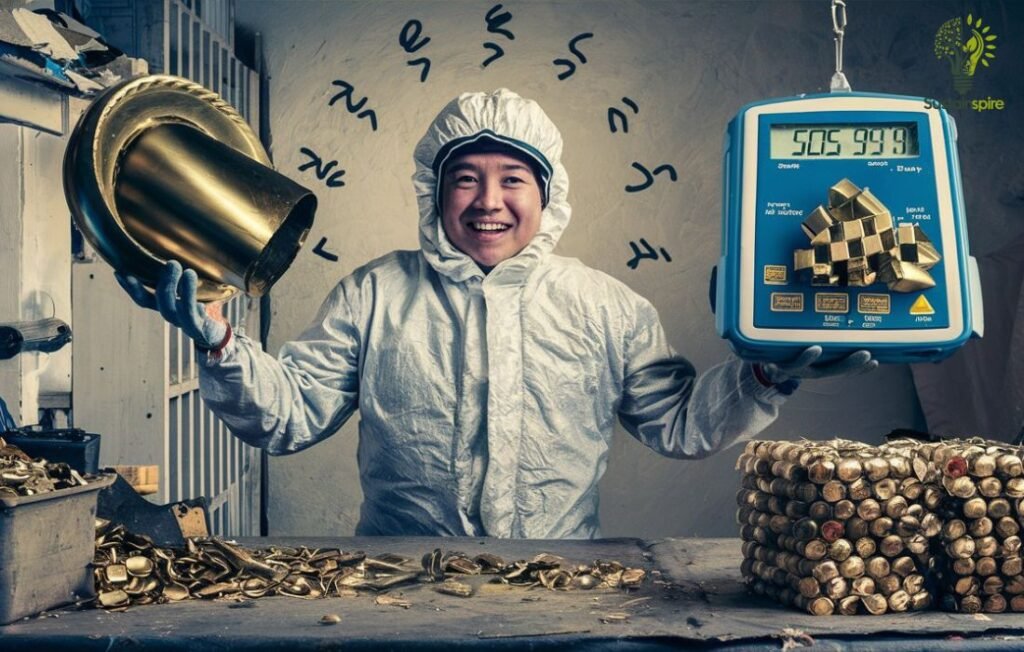
Contamination and Separation Challenges
The biggest challenge in recycling brass shells is contamination. Brass shells are often mixed with other materials, such as steel, aluminum, and plastic. It’s crucial to separate these materials to ensure the purity of the brass. Separation is a time-consuming and labor-intensive process that can increase recycling costs.
Furthermore, brass shells can become contaminated with other metals, such as lead. Lead can leach into the brass and make it difficult to recycle. As a result, it’s important to test brass shells for lead contamination before recycling them.
Fluctuating Market Prices for Brass
The market price for brass fluctuates depending on supply and demand. When the demand for brass is high, the price will be higher. However, when the demand is low, the price will be lower. This can make it difficult to predict how much money you will receive for recycled brass shells.
Legal Aspects
In the United States, there are no federal laws that specifically regulate the recycling of brass shells. However, some states have their own laws regarding the recycling of ammunition components. You should check with your local authorities to see if there are any specific requirements for recycling brass shells in your area.
Additionally, some countries have restrictions on the import and export of brass shells. If you plan to recycle brass shells from overseas, be sure to check the regulations in your country.
By understanding these challenges and considerations, you can make informed decisions about recycling brass shells. With the right approach, you can help to reduce waste and protect the environment.
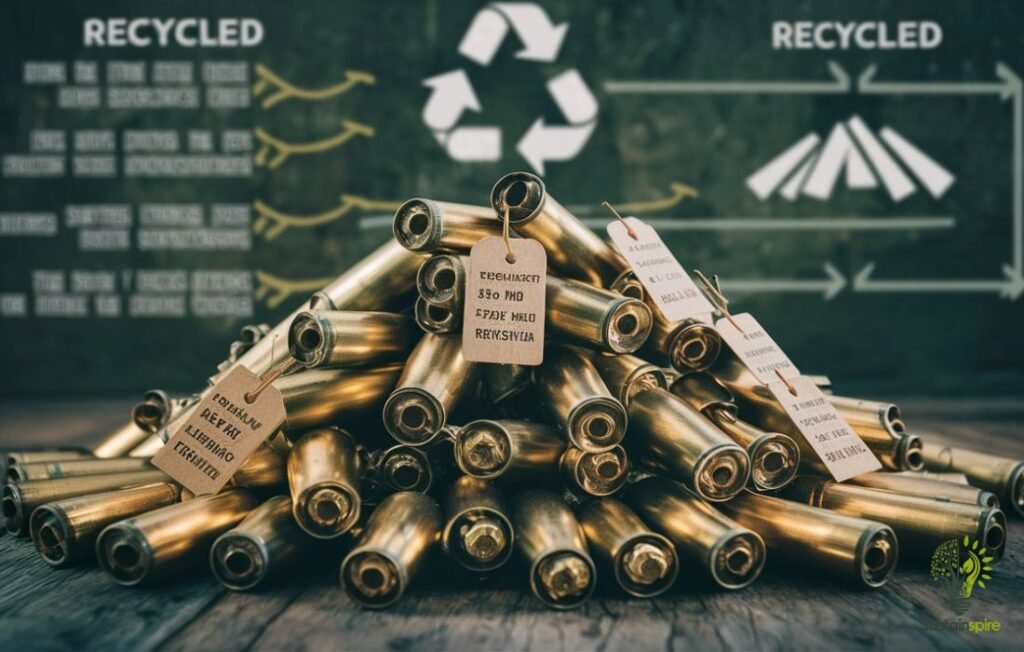
Conclusion
In conclusion, recycling brass shells is not only an eco-friendly act but also economically beneficial. It reduces landfill waste, conserves natural resources, supports local businesses, and generates additional income. The various recycling methods available, ranging from local scrap yards to online platforms, make it convenient and accessible for everyone to contribute.
Properly preparing shells by cleaning and sorting them enhances their value for recycling. However, challenges such as contamination and market fluctuations should be considered. By embracing responsible recycling practices, we can minimize environmental impact and maximize the benefits of reusing this valuable material.
Remember, every recycled brass shell is a step towards a more sustainable planet. Let’s work together to make a difference by promoting and participating in brass shell recycling initiatives.



